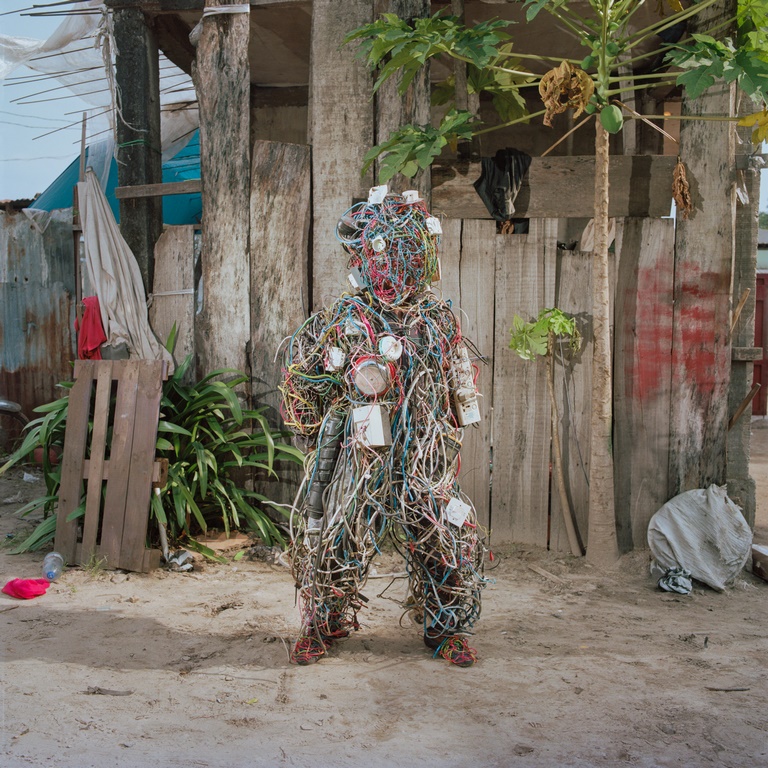
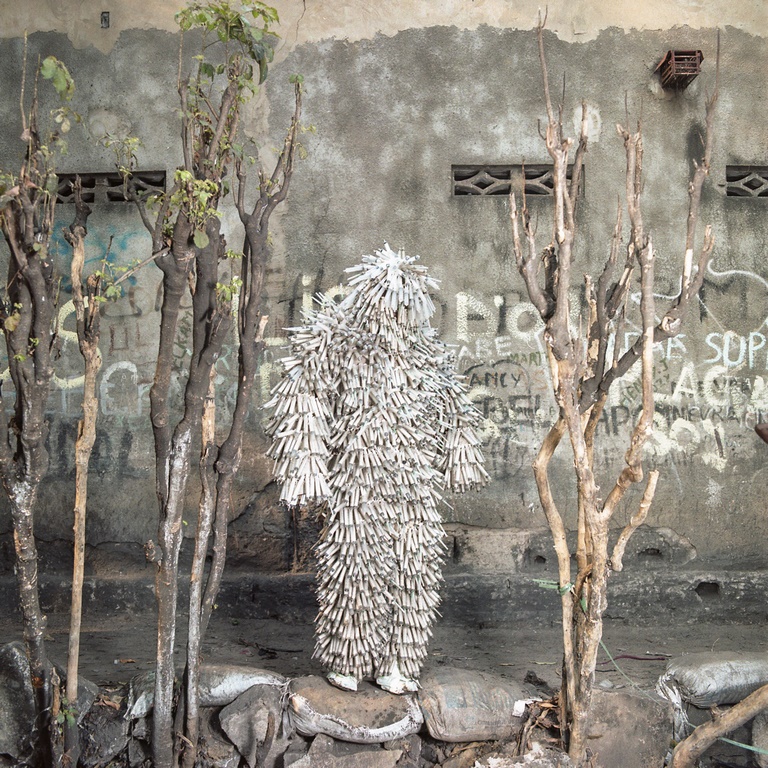
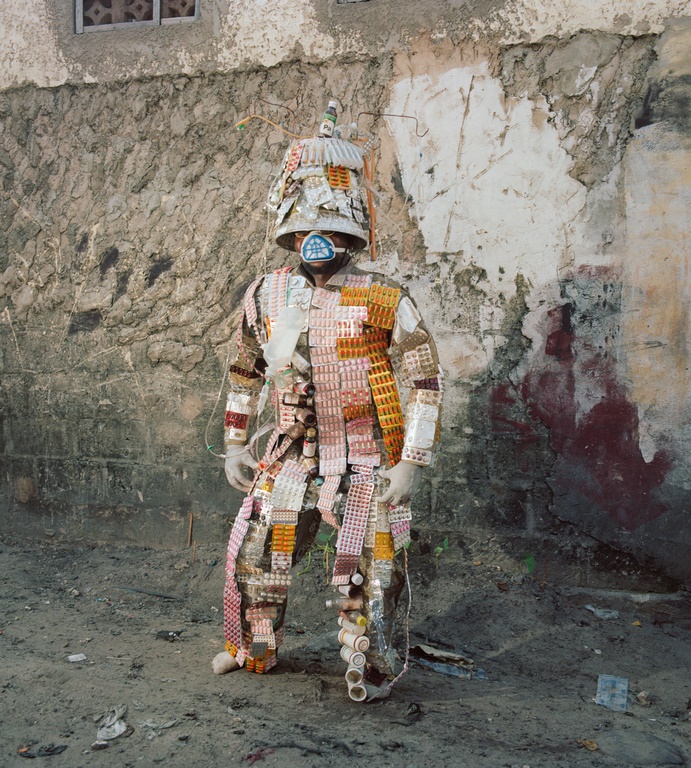
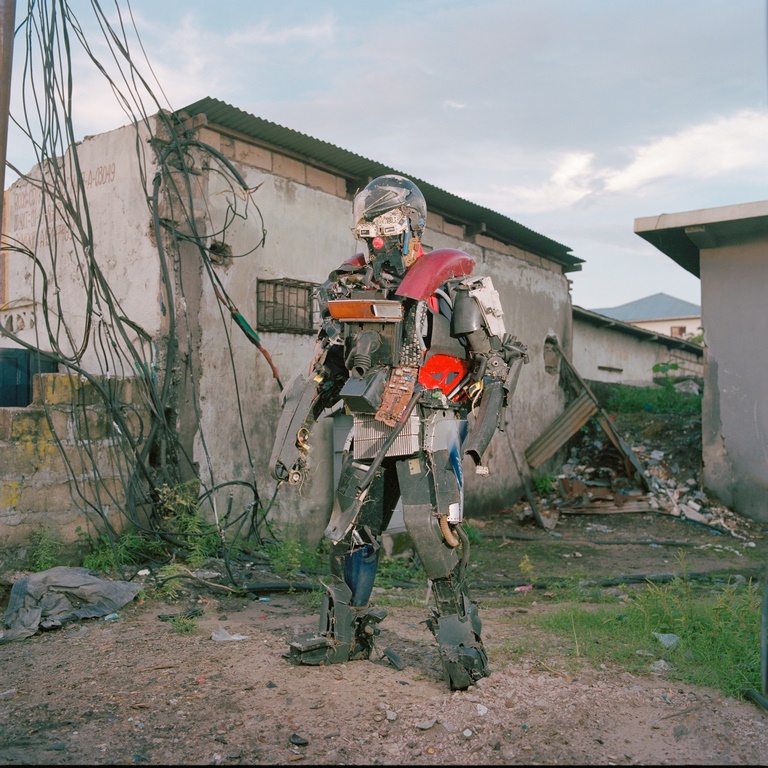
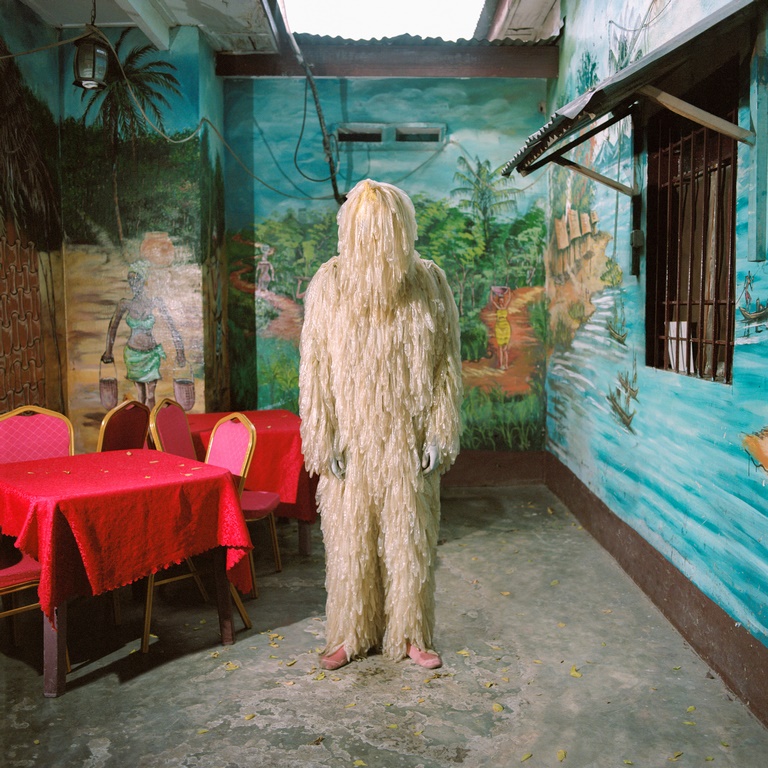
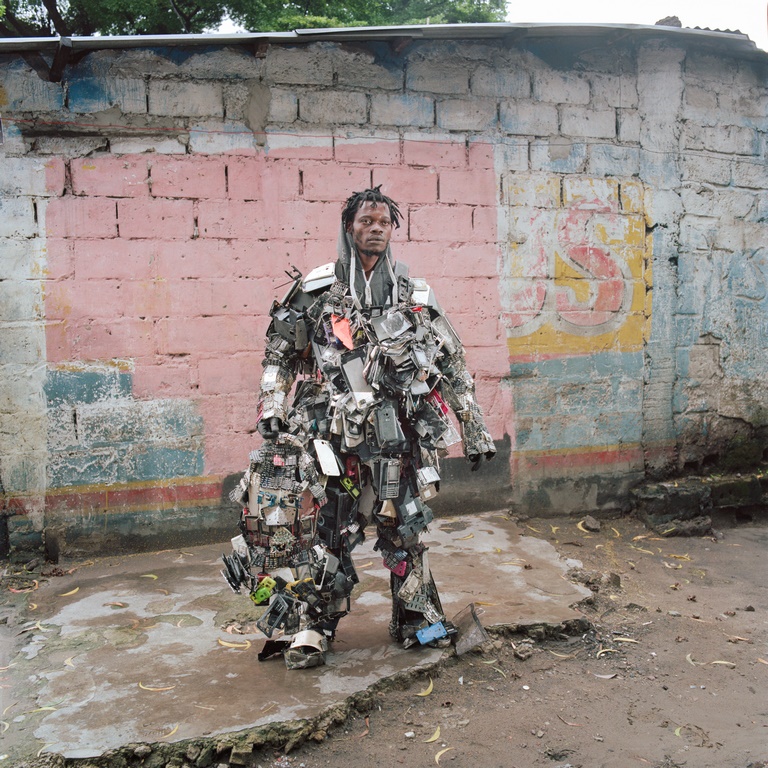
On the streets of Kinshasa—the second biggest city on the African continent—artists are raising awareness among citizens about the challenges the Congolese capital is facing.
In an increasingly degraded environment, these artists question the profusion of consumption goods and rubbish, recycling them into costumes. Gathered as a collective, they perform in the street, condemning societal issues: lack of access to healthcare, pollution, deforestation and overconsumption. By mixing urban culture and symbolic rituals, they initiate a dialogue with the city’s inhabitants.
The demographic explosion of this megalopolis coupled with its inhabitants increasing needs, the global economy and a significant appetite for single-use plastic have all led to the mass import of consumption goods, generating environmental havoc. The consequences in numbers are alarming: 16 million inhabitants generate a volume of ten ton of waste each day. Poor neighborhoods are the hardest stricken, meaning that inequalities are reinforced. A simple, colonial small town with a population of two hundred thousand at the end of the 1950s, the city has since become the hub of the Democratic Republic of the Congo after its independence in the early 1960s. Two wars and permanent insecurity have led millions of people on the road to Kinshasa. Beyond the urban center, the capital city is an endless village, lacking any kind of infrastructure. The Congolese state is unable to tackle basic challenges like roads, sewage and electricity. In these areas, the artists re-embody their city by creating contemporary myths. As for the traditional masks, they are archetypes of the main environmental challenges, questioning our modernity.
Colin Delfosse, born in 1981, grew up in Brussels, where he is currently based. A graduate of journalism, he turned to documentary photography in 2006, and co-founded a collective then working with different agencies. As a freelance photographer, Delfosse keeps a strong focus on personal long-term projects in Central Africa. After his first assignment in the Democratic Republic of the Congo (DRC) covering the 2006 elections, he returned to the DRC frequently, focusing on social and contemporary issues in the region. His work has been shown at different festivals and published in newspapers and magazines such as The New York Times, Le Monde, L’Internazionale and Jeune Afrique. Since 2015, Colin Delfosse has also worked as a photo editor for the Belgian investigative magazine Médor (www.medor.coop), which he co-founded.
This article was updated for accuracy in 2024.






